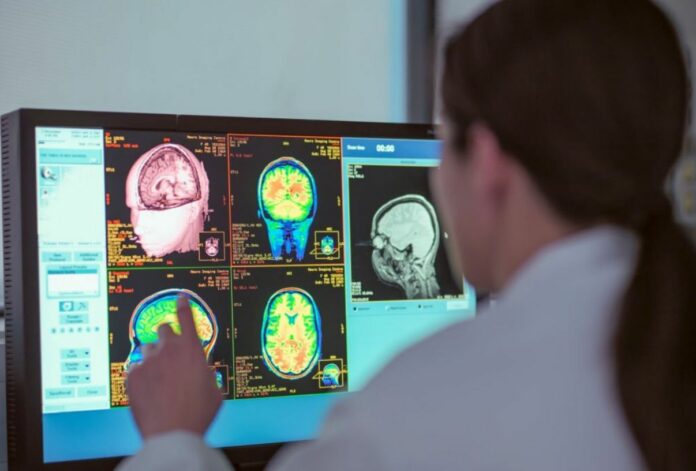New research provides the first physiological evidence from inside the human brain supporting the dominant scientific theory on how the brain consolidates memory during sleep and how we ‘can enhance memory’
Sleep is widely recognized as a crucial factor in the strengthening of memory, yet the precise workings of this process within the brain overnight remain a subject of scientific inquiry.
A team of researchers from UCLA Health and Tel Aviv University has recently conducted a groundbreaking study, providing the first physiological evidence sourced from inside the human brain to support the prevailing scientific theory on how memory consolidation occurs during sleep.
Additionally, the study revealed promising results indicating that targeted deep-brain stimulation, administered at a critical stage of the sleep cycle, could enhance memory consolidation.
The study, released on the 1st of June in Nature Neuroscience, might provide fresh insights into the potential of deep-brain stimulation during sleep as a method to assist individuals suffering from memory conditions such as Alzheimer’s disease, according to Itzhak Fried, MD, PhD, one of the authors of the research.
This outcome was made possible by an innovative “closed-loop” mechanism that delivered electric shocks to one area of the brain, perfectly timed with the brain activity observed in another area.
What Happens Inside Our Brain When We Sleep
According to the prevailing theory on how the brain transforms newly acquired information into long-term memories during sleep, there is an intricate nocturnal communication between the hippocampus (known as the brain’s memory center) and the cerebral cortex (associated with higher cognitive functions like reasoning and planning).
This communication takes place during the phase of deep sleep when brain waves slow down, and neurons across different brain regions alternate between synchronous firing and periods of silence. These findings shed light on the complex mechanisms underlying memory consolidation during sleep.
“This provides the first major evidence down to the level of single neurons that there is indeed this mechanism of interaction between the memory hub and the entire cortex,” adds Fried. “It has both scientific value in terms of understanding how memory works in humans and using that knowledge to really boost memory.”
How to Strengthen Memories During Sleep
In an extraordinary chance to investigate the theory of memory consolidation, they utilized electrodes implanted in the brains of 18 epilepsy patients at UCLA Health. These electrodes were inserted to determine the origin of the patients’ seizures during roughly 10-day hospital stays.
The experiment took place over two nights and mornings. Before going to sleep, the participants were shown pairings of pictures of animals and 25 famous personalities, including easily recognizable stars like Marilyn Monroe and Jack Nicholson. An immediate assessment was done on their ability to remember which animal was associated with which celebrity, and this was repeated the following morning after a night of uninterrupted sleep.
On a different night, they were presented with 25 new pairings of animals and celebrities before going to bed. In this instance, they received specialized electrical stimulation throughout the night, and their ability to remember the pairs was evaluated in the morning. To administer this electrical stimulation, the scientists developed a real-time closed-loop system that Fried compared to a musical conductor. This system observed the brain’s electrical signals, and during the deep sleep phase related to memory consolidation, it sent mild electrical pulses directing the rapidly firing neurons to synchronize.
Every participant displayed improved memory test results after a night’s sleep with the electrical stimulation compared to a night of undisturbed sleep. Significant electrophysiological markers further indicated that information was being transferred from the hippocampus across the cortex, offering physical confirmation of memory consolidation.
“We found we basically enhanced this highway by which information flows to more permanent storage places in the brain,” Fried adds.
In 2012, Fried published a study in the New England Journal of Medicine demonstrating the capacity of electrical stimulation to enhance memory. His research has persistently delved into the potential of deep brain stimulation to improve memory, and is now focusing on the vital sleep phase.
“In our new study, we showed we can enhance memory in general,” Fried adds. “Our next challenge is whether we have the ability to modulate specific memories.”
Source: 10.1038/s41593-023-01342-3
Image Credit: Getty
